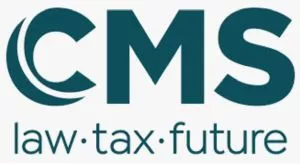- within Tax topic(s)
- in Asia
- in Asia
- in Asia
- in Asia
- with readers working within the Media & Information industries
- within Wealth Management, Media, Telecoms, IT and Entertainment topic(s)
On 24 July 2025, the Luxembourg Government submitted the recently announced draft law 8590 to the Luxembourg Chamber of Deputies. This draft law seeks to implement the long-awaited carried interest tax regime, with the objective of attracting fund managers and key persons, and further strengthening Luxembourg's position as a leading international financial centre and investment funds' hub.
The revised regime, which will take effect as from tax year 2026, also aims to provide legal certainty and a competitive environment for fund management activities via a broader application.
Background and rationale for reform
Carried interest refers to the share of profits allocated to fund managers as a performance incentive, typically contingent upon the outperformance of alternative investment funds (AIFs). This form of remuneration is distinct from returns on capital invested and is designed to align the interests of fund managers with those of investors.
Historically, Luxembourg's carried interest regime comprised a combination of temporary and permanent provisions, resulting in interpretative uncertainties and, in practice, a limited scope of application. The temporary regime, which was due to expire in 2028, offered a favourable tax rate but was restricted only to certain employees and subject to a ten-year limitation. Recognising the need for a modern, transparent, and competitive framework, the Luxembourg government has sought to attract and retain high-value fund management activities, particularly "front office" functions, which have traditionally been underrepresented.
The draft law mentions that already since 2012, the Luxembourg legislator had considered the situation of salaried managers of AIFMs was not comparable to that of employees in general. In this respect, the newly proposed regime should confirm that the carried interest qualifies always as miscellaneous income.
Key features of the new regime
- Broadened Scope - The new regime extends eligibility beyond employees of fund managers to encompass a wider range of individuals providing services to alternative investment fund managers, including independent board members and consultants. Employment status will no longer be a determining factor, and it will be possible for the recipient of carried interest to be employed by another entity, such as an investment advisory company.
- Clarified Definitions - The legislation
distinguishes between (i) the carried interest received on a purely
contractual basis and (ii) the carried interest mandatorily linked
to a direct or indirect participation in the fund
- Contractual carried interest - This category covers carried interest in principle acquired for free and without any requirement to hold a participation in the AIF. Such remuneration will be paid (directly or indirectly) by the AIF once the hurdle rate is achieved. The draft law specifies that the hurdle rate must reflect market practice, subject to requalification under general anti-abuse rules.
- Participation-linked carried interest - This applies solely to the portion of remuneration corresponding to carried interest, and not to returns received as an investor in the AIF. The bill clarifies that the legal form of the fund (opaque or transparent) is irrelevant for the qualification of the remuneration. Consequently, even if the AIF is a tax-transparent entity, income derived as carried interest will be taxed as capital gains, irrespective of the nature of the underlying income generated by the fund.
- Taxation Regimes
- Contractual carried interest - taxed as extraordinary income at one quarter of the global tax rate, with no time limitation—thereby removing the previous ten-year restriction.
- Participation-linked carried interest - Taxed under the ordinary capital gains rules. No taxation will arise if the carried interest is received more than six months after the investment is made, provided that the participation in the AIF does not exceed 10%.
- Simplified Conditions - The requirement for investors to have fully recovered their initial investment before managers employees of AIFM or management AIFM companies (e.g. general partner) may receive carried interest has been abolished, thereby permitting "deal-by-deal" distributions.
Conclusion
Luxembourg's new carried interest regime constitutes a strategic initiative to modernise its tax framework, resolve previous uncertainties, and enhance its attractiveness to global fund managers and investors. These reforms are expected to stimulate further growth and innovation within the country's financial sector.
The content of this article is intended to provide a general guide to the subject matter. Specialist advice should be sought about your specific circumstances.




